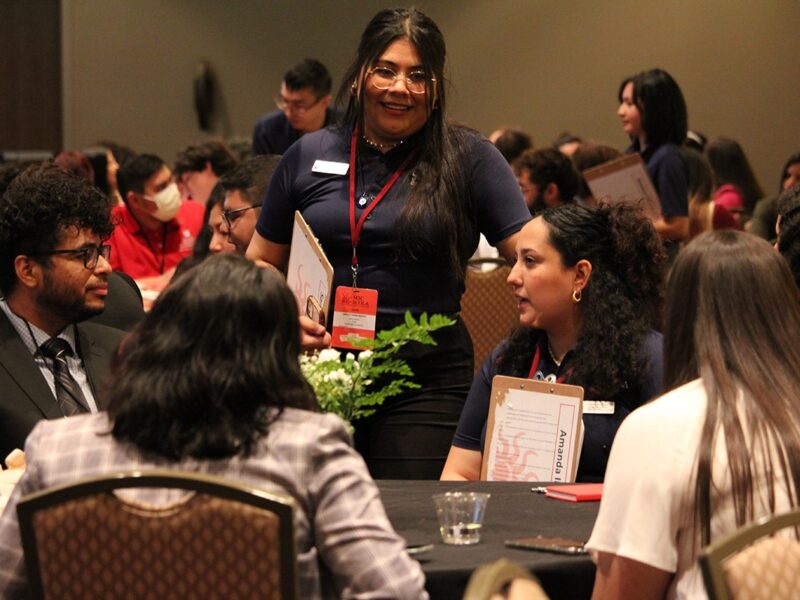Sexual Violence Researcher David Lisak Calls For Culture Shift

As Texas A&M University embarks on its own culture shift in the fight against sexual violence, it welcomed one of the nation’s leading experts on the subject to campus to begin Sexual Assault Awareness Month.
Dr. David Lisak, a clinical psychologist known for his groundbreaking research on sexual violence and appearance on the documentary The Hunting Ground, led a robust dialogue on campus sexual assault, Title IX and the Violence Against Women Act at the Hildebrand Equine and the Memorial Student Center during the two days-worth of sessions. The event organized by the Office of Consensual Language, Education, Awareness, and Relationships (CLEAR), the Division of Student Affairs Staff Development Team, and the Offices of the Dean of Student Life drew an audience of approximately 200 university staff members, administrators and students.
During a Friday session titled “Sexual Violence and Higher Education’s Response,” Lisak discussed the rapid evolution of how universities address sexual violence on campuses. He said that only four years ago, university administrators around the country were afraid to address campus sexual violence forthrightly, as it would leave the impression on parents that sexual violence was a major problem for their child’s school. He called it a “major obstacle” in the nationwide fight against sexual violence at the time, but the tone has since changed dramatically.
“I can literally see it just evaporating as the public has become much more educated, and this is in part thanks to The Hunting Ground and all the media attention,” Lisak said. “And I think basically people in this country understand this is a pervasive problem. The issue is not whether or not you have a problem, it’s what are you doing about it, and that’s a huge positive change.”
According to a 2015 Association of American Universities campus climate survey of 27 member schools, including Texas A&M, more than one quarter of female undergraduate seniors responded that since entering school, they had experienced some kind of unwanted sexual contact while in school – including rape.
Texas A&M began its own campus-wide dialogue on campus sexual violence in 2015 through the Step In Stand Up campaign, which includes a web-based platform that connects students, faculty and staff with outlets to report sexual violence and a call to action to safely intervene to change the climate of violence.
Approximately 900 members of the Texas A&M campus community have taken part in Green Dot bystander intervention training during the 2015-2016 school year. The program is on pace to reach 1,300 by the end of the school year. With Green Dot, trainees learn how to identify a potential sexual assault and safely intervene before it takes place.
Lisak said universities play a major role in turning the tide in the fight against sexual assault not only on college campuses, but nationwide, because it is the last opportunity to challenge the social norms that ignore or accept sexual violence.
“Ultimately the biggest challenge is this: the long-term, very necessary process of changing the cultural context in which sexual violence is occurring. Universities are a very important part of that culture,” Lisak said.
To learn more about the steps Texas A&M is taking to put an end to sexual violence on campus, visit http://stepinstandup.tamu.edu/index.html.
Media contact: Sam Peshek, Texas A&M Division of Marketing & Communications.





